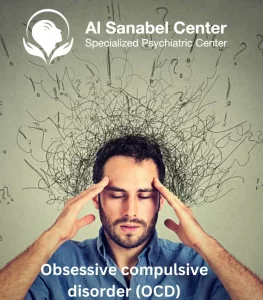What is Obsessive-compulsive-disorder (OCD) and why are people doubtful about OCD?
- Category mental health
Table of Contents
ToggleObsessive-Compulsive Disorder
obsessive-compulsive disorder, or OCD, is an anxiety-based disorder in which people experience recurring and unwanted feelings, thoughts, images, or sensations called obsessions. They might engage in compulsive, repetitive behavior because they want to reduce or temporarily hold off the distress they feel when they don’t carry out the compulsions.
You’ve probably heard stereotypes about obsessive-compulsive disorder (OCD) from people you know or from the media that leave you wondering,
“What is OCD exactly?”
People even commonly say things like, “You are so OCD,” when someone is engaging in compulsive behaviors. But OCD isn’t something you are;
it’s a set of specific anxious thoughts and behavioral urges you experience.
People with OCD may live with varying levels of symptoms, and not all of them meet the common stereotypes. In many cases, a person’s obsessive-compulsive disorder symptoms may even be unnoticeable to those around them, especially if they are already seeking treatment. Despite the variation in habits, all people diagnosed with OCD have one thing in common: they spend one hour per day or more focused on their obsessions and/or compulsions.
Many people with the obsessive-compulsive disorder develop daily routines and rituals or fixate on specific thoughts, but OCD is a deeper mental health issue. Untreated OCD typically limits a person’s ability to complete daily activities.
Even if they recognize the obsessions, they have difficulty stopping the behaviors or refocusing their thoughts.
Psychotherapy and medication have been found to help reduce symptoms and improve psychosocial functioning in individuals diagnosed with obsessive-compulsive disorder. Optimal treatment typically involves both simultaneously.
TREATMENT
There are three “well-established treatments” for obsessive-compulsory-disorder
Exposure and Response Prevention (ERP):
ERP focuses on the thoughts or situations that lead to obsessions and compulsions and gradually helps reduce anxiety.
In this, the client is exposed to a trigger and is encouraged to choose to not respond to it.
Cognitive Therapy (CT): CT focuses on reducing and challenging irrational thoughts that could be contributing to OCD symptoms.
Cognitive Behavioral Therapy (CBT): A combination of ERP and CT, CBT is a short-term, goal-oriented therapy in which clients are challenged to cope with and change their cognitive distortions and damaging behaviors.
The End










